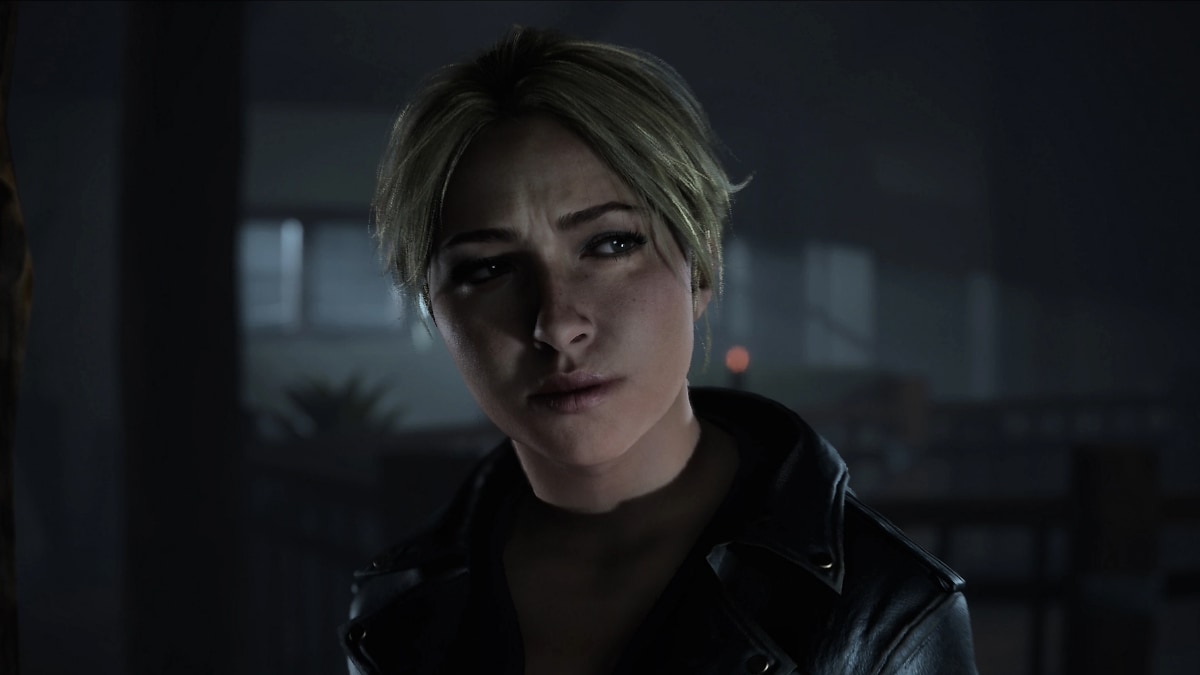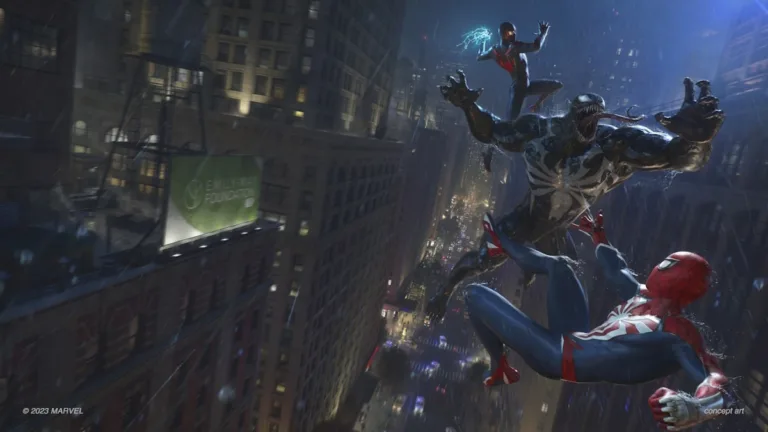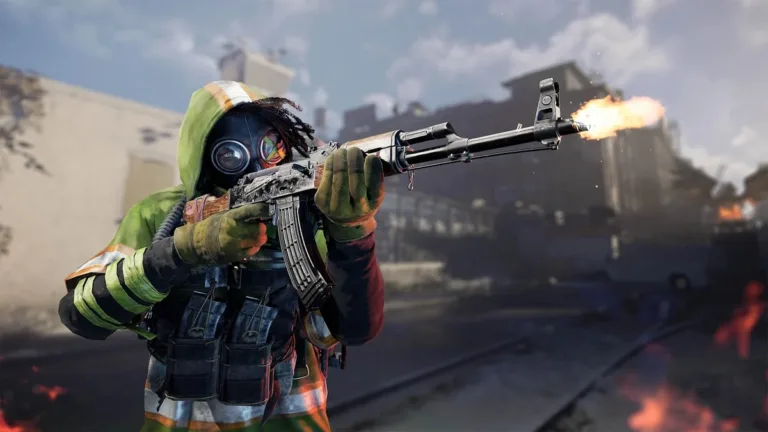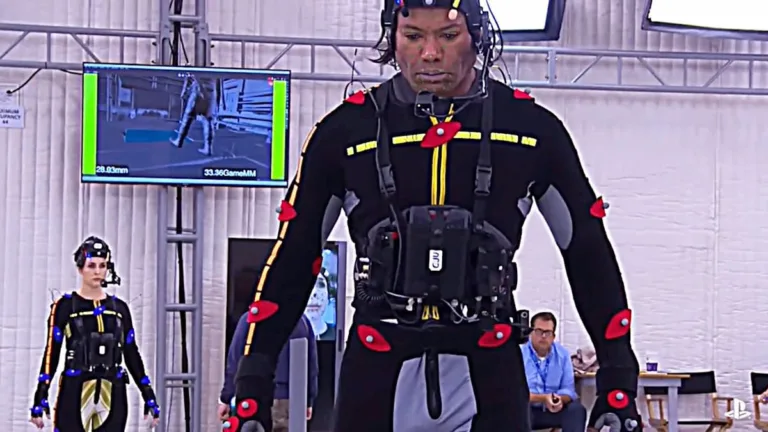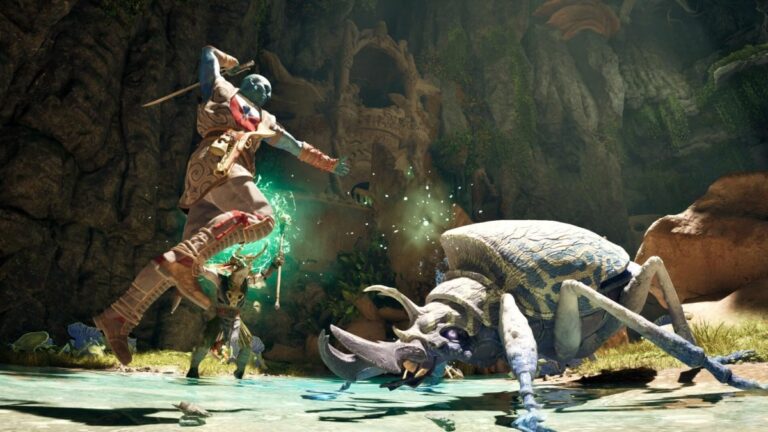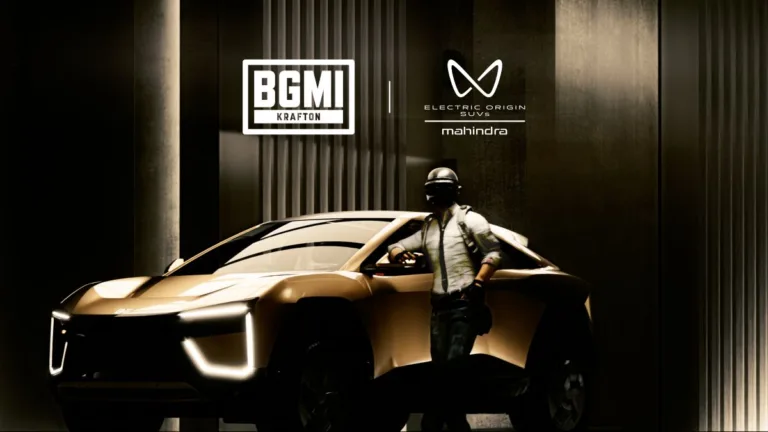Until Dawn (Remake) Review: A PS4 Horror Classic Reanimated, but at What Cost?
In any medium, a remake is a complicated undertaking. A conscious endeavour to produce a piece of art that already exists always inspires the question, why? It’s generally accepted that the decision to remake a film or a video game comes from a place of reverence for the original work. But is that admitted reverence masking an unsaid regret, an urge to improve the style or substance or both of said work? To create is to give life; to recreate is to think about that life, perhaps in a new light. And so, the best remakes reimagine the source material rather than reproducing it purely from a place of high regard. They find kernels of truth in the original work and try and expand on it, often taking it to places unexplored the first time around.
Until Dawn is not such a remake. The recently released survival-horror interactive video game doesn’t reinterpret the PS4 classic from 2015. It doesn’t expand and explore the setting and characters beyond the scope of the original. And consequently, it doesn’t completely justify its reasons to exist. After all, a perfectly fine version already exists, playable on the PS5 via backwards compatibility, and at no additional cost if you subscribe to PlayStation Plus. But the Until Dawn remake is also not a mere replica of Supermassive Games’ sleeper hit horror game. Aside from the considerable visual upgrade, the remake comes with a few gameplay tweaks — some meaningful; others, not so much — character and story alterations, new areas and items, an adjusted camera perspective, and a new sound and score.
The value of these changes, however, are not written in stone. If you’ve played and enjoyed Until Dawn before, you’re unlikely to find something here that will unlock a radically new experience, even if it does enhance your memory of the original. But if you’ve never played the definitive interactive horror title that kicked off a slew of games in the same genre, then perhaps the Until Dawn remake presents the most slick and cinematic way to experience the interactive slasher. Regardless of where you stand, the game remains as fun as it was almost a decade ago, especially for people who love screaming at the stupid decisions of promiscuous teens in a horror movie — “Why did you split up, you idiots!?!” There are some technical frustrations here that come close to disrupting the experience, but I was able to look past the bugs and enjoy the spooky story, that still holds up after all these years.
Astro Bot Review: Team Asobi’s Nintendo-Style Platformer Is an Instant PS5 Classic
There’s a variety of smaller alterations that make the Until Dawn remake stand out from the original, but none are as radical as its visual enhancements. Ballistic Moon have rebuilt the game from the ground up in Unreal Engine 5, overhauling the visuals to a level where it goes beyond a mere facelift. The most obvious change is in the tone of it all. The original game came with a frigid visual style that drenched the frame in a bluish hue. The remake ditches that blue filter for a warmer, more cinematic tone that favours a richer palette. This is controversial choice. I’m sure many would prefer the colder look of the original; the blue tone helped sell the bleakness of the setting and fittingly drained all warmth from the scene. It was certainly a creative choice of the developer and dismantling that choice for a new look will displease a lot of fans.
But I do feel the new visual style grounds the game in realism. It also brings a much more diverse spectrum of colour tones to the different environments of Until Dawn. Grimy basements, decaying mines and magnificent outdoors — all look and feel distinct instead being painted with a single brush. The softer, warmer lighting also helps lull you into a false sense of winter comfort before the horrors of the night take over.
![]()
Until Dawn remake features softer, warmer lighting and a richer colour palette
Photo Credit: Sony/ Screenshot – Manas Mitul
Character models are now incredibly detailed without messing with their intended look in the 2015 game. Faces are much more expressive, driving home the terror and the relief they feel over the course of the game. This means the story relies less on dialogue, which can often be clunky, to communicate what’s going on. There are marked improvements to textures and environments and a thick coat of extra detail now clings to everything in the game — from tiny table-top clues to snow-covered foliage. Walking around in the night in knee-deep snow as you navigate Blackwood Mountain is an immersive experience.
The Until Dawn remake also brings a third-person camera perspective to certain sections that featured a fixed camera in the original game. This new addition brings players closer to the action, but in a game that leans on its cinematic presentation, the fixed camera helped emphasize creative choices for the cinematography in the original game. With the third-person camera, you lose the film feel and are pushed towards a video game aesthetic. For a game that’s practically an interactive horror movie, that choice ends up harming the experience.
![]()
Character faces are more detailed and expressive in the Until Dawn remake
Photo Credit: Sony/ Screenshot – Manas Mitul
Visual upgrades aside, the Until Dawn remake is still telling the same story as the original — overlapping narratives focused on eight young adults, all of them friends, stuck in a snowed-in mountain lodge as an unnatural horror unfolds around them over the course of a single night. It’s a pastiche of the quintessential teen slasher, with each character a stereotype — there is the affable jock, the sexy blonde, the unlikeable friend, the shy nerd and the righteous heroine, also known as the final girl. The eight friends have assembled at a family lodge in Blackwood Mountain, a year after an ill-conceived prank at a similar gathering at the same place turned into tragedy. The winter winds and heavy snowfall have left the howling, frigid mountain cut off from the outside world. On the fateful night, the Washington Lodge becomes the stage on which the interactive drama plays out.
Until Dawn begins with a prologue, set a year before the events of the game take place. Ten friends have come together to party at Hannah Washington’s lodge in Blackwood Mountain. After an insensitive prank leads Hannah to leave the lodge and rush into the woods distraught, her twin sister Beth follows her. The two stumble upon something sinister in the mountain and fall off a cliff. With no bodies found after an ensuing search, the police declare them missing, presumably dead. In the remake, this prologue has been reworked to provide more screentime to Hannah and Beth and add more context to the cruel prank that led to a family tragedy.
![]()
Until Dawn tells the story of eight friends, reuniting at a secluded mountain lodge
Photo Credit: Sony/ Screenshot – Manas Mitul
A year later, Hannah and Beth’s brother Josh — played by Rami Malek, still struggling to come to terms with his sisters’ disappearance, invites all seven friends present at the ill-fated party back to the lodge. The guilt and grief of what transpired a year ago weighs on everyone. They harbour apprehensions about returning to the lodge, but agree to show up to support Josh. Perhaps coming together will help the group move past the tragedy and bury the ghost of the past in the mountain. This is where the events of the night kick off. Over ten chapters, every member of the group experiences their own personal horror — from a deranged, violent killer on the loose and Saw-style elaborate death traps, to a vicious supernatural threat and environmental hazards at the Blackwood Mountain.
Each character comes with pre-defined traits and a stat page that details aspects of their personality. For instance, Mike, the handsome jock, is charismatic and brave, while Chris, the awkward and shy nerd is loyal and methodical. A character’s stats dictate how charitable, brave, romantic, funny, honest, or curious they are. And while these values start at a corresponding default for each character, they change over the course of the night as they interact with others, take crucial, life-altering decisions, and navigate their circumstances in specific ways.
![]()
Mike is portrayed as charasmatic and brave
Photo Credit: Sony/ Screenshot – Manas Mitul
The friend group is also not free of interpersonal baggage. For instance, Mike and Jessica, the feisty blonde, are paired up as a romantic couple, but the former still has an unspoken connection with Emily, the brash extrovert who always gets her way. These dynamics create friction or attraction, depending on the people, and a character’s relationship with other people in the group could improve or worsen as the night progresses. But the Until Dawn remake misses a trick by keeping character traits and relationships as sterile as they were in the original game. You see someone become braver as you favour bolder choices, or you see a character’s honesty stat rise as you chose to tell the truth, but these changes don’t leave any material impact on characters or their actions.
A few finer details about the characters and their individual narrative arcs have been reworked in the remake, but the core branching storyline that connects the experiences of all friends stuck in their own perils remains the same. That is the horror hook here. Eight friends, one deadly night, no way out. Those who have played through the original Until Dawn would know that the game is more an interactive movie. When you play as a character, you dictate their movement, but your control over their actions is tied to contextual prompts. What you do have full control over is their decision-making. You decide what they do, or don’t do; you decide how they respond to people and situations; and thus, essentially, you decide whether they survive the night or are lost to the mountain. Everyone’s life is in danger, and until dawn, you are effectively God. Based on your choices and actions, all eight friends can survive the night, or meet their violent ends before day breaks.
![]()
Everyone can survive or die in Until Dawn
Photo Credit: Sony/ Screenshot – Manas Mitul
This freedom to become the scriptwriter of your own private slasher movie was the highlight of Until Dawn when it first released in 2014, and it remains the hook in the remake. Don’t like a particular character? Play them badly and watch them die in gruesome fashion. Rooting for someone? Make all the right choices and exercise caution to see them defy all the death traps and live to see another day. The Until Dawn remake attempts to enhance the story of each character through scattered and tiny details that add an extra dimension to their night on Blackwood Mountain. Some characters have possible new endings, others have potential new choices as they navigate life-threatening circumstances.
While the story has a central trunk, its branching narratives cover three separate mysteries — the disappearance of the twins, the sinister history of the mountain from 1952 and the present threat of the psychopathic killer hunting the friends one by one. Each mystery has its own clue line, and if you’re adventurous and thorough enough, you can comb the environment and discover all clues that eventually paint the complete picture of the mountain and its evil. While the Washington Lodge is the central stage, you can also explore different locations on the mountain while controlling specific characters. With Mike, you comb through the dilapidated remains of a sanatorium, where ghoulish experiments on patients in the past birthed evils that may still lurk there. While controlling Sam, the game’s heroine, played by bona fide scream queen Hayden Panettiere, you explore the ruins of the Blackwood Pines hotel that sit beneath the lodge. And as Emily, you go deeper into the heart of evil as you uncover the secrets of an abandoned mine in mountain.
![]()
Hayden Panettiere plays Sam, the game’s righteous heroine and final girl
Photo Credit: Sony/ Screenshot – Manas Mitul
But exploring these locations is never quite smooth. The remake retains some of the clunkiness of the original and adds some of its own. Even with a third-person camera view, navigating tight spaces can feel like a chore. Character movement is still suffocatingly stiff and limited and you often feel like you’re controlling mannequins. And it doesn’t help that every character moves at the pace of a snail, trudging along the snowy outdoors and dark indoor areas with zero urgency. The remake could have done well to add the ability to sprint or jog and move things along. Instead, it bafflingly slows things down further by taking away the ability to walk faster by holding down the L1 bumper button from the original game. In certain pressing story moments, characters do break into a jog automatically, but these sections are short-lived, and when most of the game is about walking around and looking at things, not having the option to do that faster becomes a grating omission.
But this time, you do get additional collectibles and pockets of new areas to explore in certain locations. Perhaps the most important collectible in the game are Totems — indigenous artefacts that foretell events that may transpire if you walk down a certain path. Exploration is rewarded with Totems that could end up warning you of impending dangers or guiding your path towards fortuitous outcomes. The remake rejigs the location of some of the existing Totems and adds a whole new type of them that provide context to events that transpired in the year since the disappearance of the sisters. For obsessives like me, Until Dawn provides a satisfying collectathon experience, balancing the rigour of exploration with the reward of meaningful mysteries, lore discoveries and hints that help you survive the night. Finding items that tell you more about the sordid past of the mountain and resolving clue lines is just as engaging as it was the first time around. And utilising the crystal ball visions from a Totem to avoid a gory death never gets old, too.
![]()
Putting in the time to explore spaces and find clues is rewarding
Photo Credit: Sony/ Screenshot – Manas Mitul
Your choices in Until Dawn, however, are the game’s most crucial currency. The decisions you take script the game in real time, stitching and ripping the fabric of the story to your whim. The game’s Butterfly Effect feature passively registers your choices, both big and small, and dictates the chaos of repercussions that might occur several chapters later. The Until Dawn remake brings a few new pathways the story can take, most notably making it possible to the change the fate of a major character and creating a new resolution for their arc that was not present in the original game. The remake also comes with a new secret ending that throws up some interesting questions and perhaps the possibility of a sequel down the line.
When I’d played the original Until Dawn, I did a full chaos run, making the worst choices and consequently letting several characters meet their bloody ends. This time around though, I decided to play carefully, making wise choices along the way. By the time it was dawn and end credits rolled, I was able to save all but two characters and get one of the new secret endings. At some point, I might dive back in and play the game a different way for different outcomes. Your choices make each playthrough different and that brings rewarding replayability to Until Dawn.
EA Sports FC 25 Review: Minor League Upgrades
![]()
Until Dawn’s story is guided by your choices
Photo Credit: Sony/ Screenshot – Manas Mitul
Perhaps the most important question then, is that who is the Until Dawn remake for? Is it for fans of the original game? If so, then a $60 price tag (Rs. 3,999 in India) with no upgrade path for people who own 2015’s Until Dawn on PS4 is a very prohibitive pricing choice that is likely to keep people who have already experienced the game away. The visual upgrades and additional content, especially the new story endings and character resolution, are considerable. But for a decade-old game that can be fully experienced in around seven hours, full price is a tall ask. The graphical advancements come with an altogether different cost, too; the Until Dawn remake is not free of bugs and visual glitches. And performance — locked to 30 fps on the PS5 — is spotty at best.
The remake, however, is easier to recommend on PC, where it can take advantage of high-end hardware and find players who have never experienced the game before. Despite its questionable value, the Until Dawn remake is undeniably fun. Its modernised retelling of a scary story I enjoyed long ago remains just as engaging and visceral as it was the first time around. As an interactive horror movie, Ballistic Moon’s Until Dawn takes meaningful strides towards storytelling excellence. But as a remake that shies away from mechanical improvements, it stops short of transforming its parts that are all video game.
Pros
- Stunning visual upgrade
- Improved character models and faces
- Fun, interactive horror story
- New collectibles and areas
- New endings and character resolution
- Replayability
Cons
- Steep pricing and no upgrade path
- Clunky movement and stiff animations
- Sterile character traits and stats
- Performance issues and bugs
Rating (out of 10): 7
The Until Dawn remake released October 4 on PS5 and PC. We played a review copy of the game on the PS5.
The remake is priced at Rs. 3,999 on the PlayStation Store for PS5, and Steam and Epic Games Store for PC.

